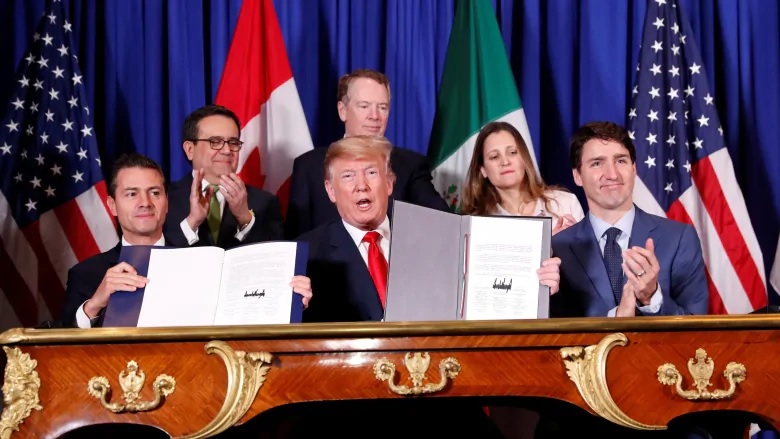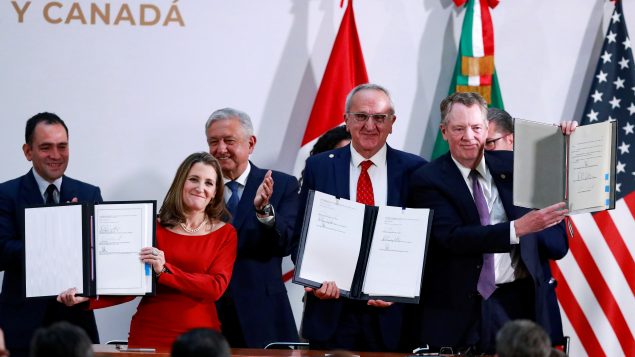It’s known officially as CUSMA- the Canada, US, Mexico Agreement, although it’s still often referred to as NAFTA, or NAFTA 2.0 (North American Free Trade Agreement)
It’s been a long time in negotiation, almost there with agreements and signing, then new amendments worked out and finally an agreement.
So as a major international deal, what’s good and not so good after so long and often contentious negotiation.
Michael Manjuris (BAScMBA, PEng) is professor and chair global management studies at Ryerson University
ListenThis deal had its origins back in the late 1980’s with the Canada-US Free Trade Agreement signed in 1989. This evolved into NAFTA with the addition of Mexico in 1994.

U.S. President Donald Trump, centre and Mexico’s President Enrique Pena Nieto show off signatures while Prime Minister Justin Trudeau applauds at the USMCA signing ceremony in Buenos Aires, Argentina Nov. 30, 2018. Mexico’s economy minister, Ildelfonso Guajardo, U.S. Trade Representative Robert Lighthizer and Canadian Foreign Minister Chrystia Freeland are behind them. It seemed there was a deal, but not quite as revisions were demanded, (Kevin Lamarque/Reuters)
The trade deals have been contentious since they were first proposed, and although the leaders involved insist they are all beneficial for all parties, many critics disagree.
Nonetheless, professor Manjuris gives this latest deal a “B” grade. Given the competing demands of the three parties, he says Canadian negotiators did a fair job of protecting Canadian interests especially given the volatile politics of the U.S under the current administration.
As it was in the past, he says some industries and businesses may find it tough going during the period of transition, once the deal has been ratified by the three governments, but now that terms have at least been agreed to, he says they will have a much clearer guide as to the rules going forward.







For reasons beyond our control, and for an undetermined period of time, our comment section is now closed. However, our social networks remain open to your contributions.